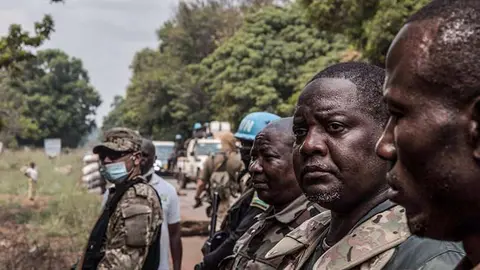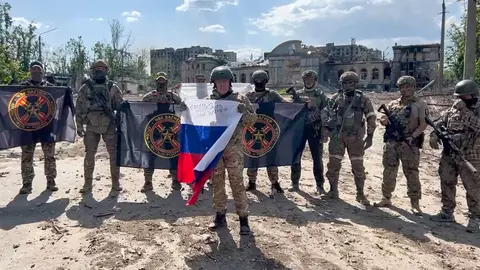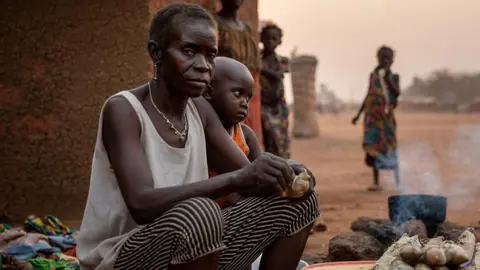CAR approves referendum that opens the door to a third term for Touadéra

The Central African Republic's electoral authorities have announced the victory of the "yes" vote in the constitutional referendum to give President Faustin Archange Touadéra a third term in office. According to AFP, 95.27% of voters were in favour of removing the two-term limit, compared to 4.73% against. The controversial referendum, held on 30 July, had a 61.10% turnout and will be ratified by the constitutional court on 27 August.
Thanks to this vote, President Touadéra - first elected in 2016 - will be able to seek the presidency for a third time and thus complete 16 years at the helm of the country. In 2020, the Central African leader won his second term amid allegations of fraud.
That is why the country's political opposition, as well as parts of society, have boycotted the referendum. "It's a farce. We have all seen that people did not turn out to vote and it does not reflect the will of the Central African people," said Crepin Mboli-Goumba, a member of the opposition BRDC coalition, in statements reported by the news agency. There has also been criticism of the management of the referendum, highlighting the lack of an updated electoral register as well as of independent institutions in charge of guaranteeing a free vote.
The opposition also accuses Toudéra of wanting to become "president for life" thanks to the backing of the Wagner Group, which has been present in the country since 2018. According to the Financial Times, it is estimated that 1,500 Wagner fighters are crucial to the president's personal security.
Like Toudéra's political rivals, NGOs such as Human Rights Watch have condemned the referendum, calling it a "threat" to democracy. HRW denounces the harassment of opponents of the referendum by government officials, as well as the ban on organising demonstrations against the authorities.
The NGO also recalls that Touadéra himself has led these attacks against opponents, claiming that the leaders of the opposition coalition are linked to rebel groups and criminal organisations.

On the other hand, the Office of the United Nations High Commissioner for Human Rights (OHCHR) pointed out last June that the main proposals for a constitutional reform had not yet been made public, which, moreover, posed risks of political, security, logistical, technical and financial problems, reports EFE.
The African country has been in a spiral of violence since 2012, when Seleka rebels seized power and started a civil war. The ongoing fighting has led to a severe humanitarian and food crisis in the Central African Republic. According to data from the UN Office for the Coordination of Humanitarian Affairs (OCHA), more than one in five Central Africans is currently displaced within the country or in neighbouring countries, while 50% of the population does not eat enough.
In addition to this bleak picture, there is also the presence of Wagner mercenaries in the country, accused by the UN and NGOs of committing crimes against the civilian population, as is the case in other African countries.











